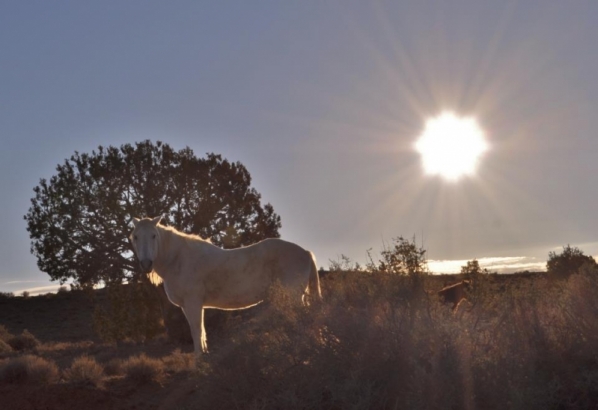Navajo human rights officials assert federal relocation policies fail miserably
August 17, 2012 by pathfinder
Filed under Latest Posts
Cross-posted from The Navajo Post
By: Rachelle Todea, guest contributor
SAINT MICHAELS – The Navajo Nation Human Rights Commission asserts that the federal plan to relocate over 12,000 people within ten years simply unrealistic in the NNHRC public hearing report, “Impact of the Navajo-Hopi Land Settlement Act of 1974—P.L. 93-531.” The report was distributed to Navajo Nation government officials on August 3, 2012.
“Although Congress strove to have relocation completed within five years of the passage of the 1974 Act, relocation continues and subsequent legislation was passed to facilitate the completion of relocation,” according to the NNHRC report about the March 28, 1996 Senate Oversight Committee of Indian Affairs on the proposed settlement and the Accommodation Agreements. “In 1996, Congress passed the Navajo-Hopi Land Settlement Act, otherwise known as the Accommodation Agreement which required Navajos still on Hopi Partition lands to sign a 75 year lease with the Hopi Tribe.”
Signing the Accommodations Agreement allowed Navajos to stay at their residence but to abide by all Hopi laws.”
A handful of Navajo people refuse to sign the Accommodations Agreement or relocate.
According to NNHRCs 2012 report, available data indicates and relocatees’ and resisters’ testimonies corroborate federal relocation policies failed miserably. Also, “[i]n 1985, a study authorized by the House Appropriations Committee reported the failure of relocation.”
In spite of the federal plan to relocate 12,000 people in 10 years and Congress aiming for 5 years, nearly 38 years later, resisters remain.
Today, the handful of resisters face inhumane conditions, according to the NNHRC report.
“[NNHRC] also finds that daily harassments, intimidations and surveillance of the Diné who refuse to either relocate or sign the Accommodations Agreement to be human rights violations,” according to the NNHRCs report findings.
“These resister families with their compassionate and renowned matriarchs exemplify our resilience, they are our roots to the bedrock of who we are as Diné and who we must remain to be,” according the NNHRC report. “[Navajo People] are empowered by their steadfastness, their sacrifice and their courage. We honor them.”



